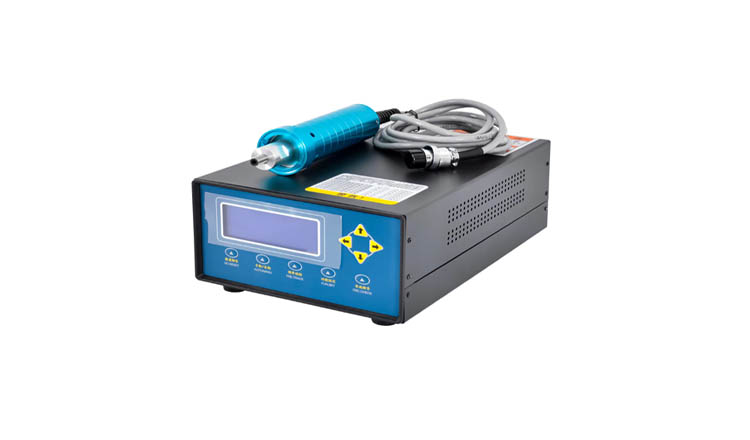
The ultrasonic spot welding machine is a device used for welding plastic materials. It is mainly
applied to large flat workpieces, thermoplastic corrugated boards, thermoplastic extruded sheets
or cast plastic sheets, as well as complex-shaped workpieces where the joint surfaces are difficult
to access. Therefore, ultrasonic spot welding machines are suitable for more precision-focused
industries such as the printing consumables industry, communications industry, electronics
industry, jewelry industry, watch industry, automotive components industry, railway industry,
aviation industry, and more, making their applications quite extensive.
From the perspective of practical product applications, ultrasonic spot welding machines fulfill
the requirements of many industries in terms of functionality and design. The ergonomic design
of the welding gun, coupled with a ultrasonic vibration switch, makes the welding gun easier to
handle. The machine is equipped with protective wire sheathing to ensure both machine and
operator safety. It can operate at a working temperature of 60°C for extended periods. It is suitable
for various processing methods such as spot welding, screw implantation, riveting, fabric cutting,
and more, making it a versatile processing tool.
The ultrasonic spot welding machine is a convenient processing and welding device. However,
with prolonged usage, certain issues might arise. For instance, the power might not display, the
ultrasonic testing might not show current, or there might be problems with excessive welding
current or overload. Let's discuss some common problems and their solutions for ultrasonic
spot welding machines.
A. Power not displaying when the device is turned on:
This could be due to a blown fuse in the device. Check if the power transistor is short-circuited,
and if any issues are found, promptly repair or replace it. If the fuse is damaged, replacing it
should solve the problem.
B. No current display during ultrasonic testing:
There are three potential reasons for this issue. First, the power transistor might be damaged.
Second, there could be a fault in the relay control circuit. Third, the high-voltage capacitor
might have burnt out. The solution is to replace the damaged parts in the device.
C. Excessive current or overload during welding:
If the ultrasonic welding head is too large, it could lead to excessive current impact. In such
cases, a more powerful device should be used. Alternatively, the triggering pressure might be
high and the delay time too long, leading to excessive current. Lowering the triggering pressure
and reducing the delay time is necessary. High air pressure could also be a cause, requiring a
decrease in air pressure. Lastly, the secondary rod transformation ratio might be too high, and
switching to a lower ratio secondary rod should fix the issue.
Phone: +86-15989541416
E-mail: michael@sztimeast.com
Whatsapp:+86-15989541416
Add: 3/F, Building 5,Huixin Intelligent Industrial Park, Xinhu, Guangmin, Shenzhen,China 518107